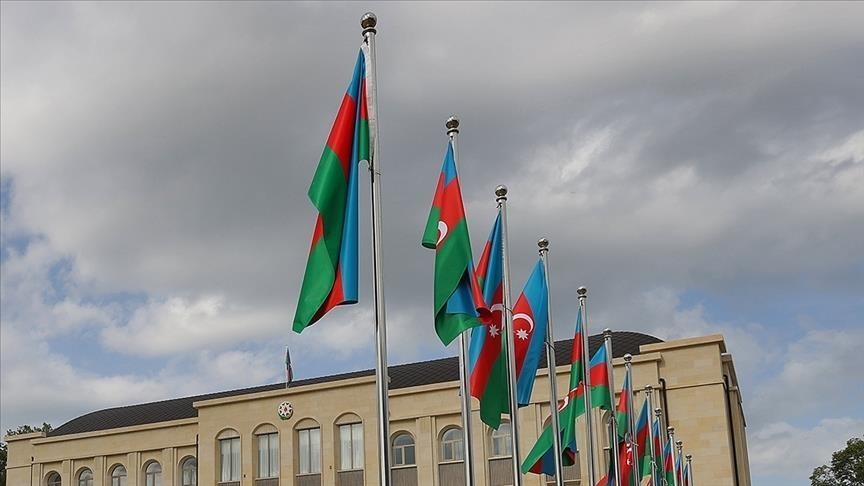Azerbaijan rejects calls to sign draft peace deal with Armenia without non-agreed provisions
Baku’s primary condition for signing actual peace deal is removal of territorial claims against Azerbaijan in Armenia’s Constitution, says Foreign Ministry spokesman

ISTANBUL
Azerbaijan on Tuesday rejected calls by Armenian officials to sign a draft peace deal being discussed between the two countries without the presence of the non-agreed provisions in the pact.
“The call of the Armenian officials to sign the draft ‘peace agreement’ with the removal of non-agreed provisions, and attempts to postpone the solution of existing problems in bilateral relations to the next stage, are unacceptable,” Azerbaijani Foreign Ministry spokesman Aykhan Hajizada said in a statement.
Describing allegations made by Armenian Prime Minister Nikol Pashinyan during a forum in the Armenian capital Yerevan earlier in the day as “pure distortion of reality,” Hajizada said Baku’s primary condition for signing the actual peace deal is the removal of territorial claims against Azerbaijan in Armenia’s Constitution.
Hajizada said attempts to draw parallels between Azerbaijan’s and Armenia’s constitutions are fruitless, adding that Yerevan’s reference to the provision that “neither party may invoke its domestic legislation for not implementing its obligations under the peace agreement” to support the idea that its Constitution is harmless is in fact “null and void.
“On the issue of opening up communications, the prime minister of Armenia once again misinterpreted the obligations they had undertaken. Paragraph 9 of the trilateral statement clearly states the obligations of Armenia and how to organize control over transport links,” Hajizada added.
He went on to accuse Armenia of “distorting reality” through its claims about Baku’s alleged obstruction of the return of refugees and internally displaced persons, as well as claims on the “non-return of prisoners of war” and “ethnic cleansing of local Armenians.”
“At the same time, the presentation of migration of the Armenian-origin population to Armenia and other countries after the 2023 anti-terror measures (in liberated Karabakh) is another slander campaign,” he also said.
“We call on the Armenian side, which continues aggressive slanderous rhetoric against our country using various platforms, to stop delivering statements that harm prospects for peace,” he added.
Armenian officials have not yet commented on the statement.
History of rocky relations
Relations between Baku and Yerevan have been tense since 1991, when the Armenian military occupied Karabakh, a territory internationally recognized as part of Azerbaijan, and seven adjacent regions.
Most of the territory was liberated by Azerbaijan during a 44-day war in the fall of 2020, which ended after a Russian-brokered peace agreement that opened the door to normalization and the demarcation of their border.
In September 2023, Azerbaijan established full sovereignty in Karabakh following an "anti-terrorist operation" after which separatist forces in the region surrendered.
Anadolu Agency website contains only a portion of the news stories offered to subscribers in the AA News Broadcasting System (HAS), and in summarized form. Please contact us for subscription options.






